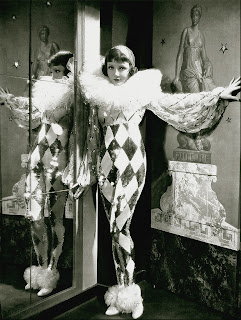I'd visited Ryan Casey's blog a few times to read his posts, so when he approached me about doing a guest post I was thrilled!
And curious. "What," I wondered, "would he write about?" I imagine this might be a bit like turning your car over to one's teenager for the first time. You are proud and terrified all at once.
As it turned out I needn't have worried. As with all his other articles I was entertained and informed all at once. One can't ask for better than that.
Ryan: Shall we get the elephant in the room out of the way, then? Okay, here goes: a lot of self-published books look ugly.
Before you sharpen the pitchforks and start declaring me a traitor, bear with me. I too am a self-published author, or at least will be when my debut novel,
What We Saw, drops this Autumn. I also believe that we’re in the midst of a revolution, and that there really has never been a better time to be an independent writer.
But, I think we need to start taking responsibility for ourselves. We can begin by setting some basic standards with regards to design.
About that cover…
Didn’t you get the memo? Unfortunately, people do judge books by their cover, it seems. Actually, I say ‘unfortunately’ lightly, because I don’t think it’s such a terrible thing. Having something aesthetically beautiful really adds to that sense of achievement upon novel completion, after all.
So, be honest with yourself. Are you a Photoshop pro? Then give it a spin, and see how it goes. If not, then
don’t kid yourself. It’d be much wiser to employ a designer to do the work for you.
‘But designers are so expensive, and don’t necessarily understand my vision. What should I do?’
I’m going to argue for a somewhat unpopular stance in the design community. I held a design contest with
99designs.com to find my winning What We Saw cover.
Have a look at it…
It’s not bad, is it? It cost me £199. That’s… around $300 dollars; much cheaper than some of the ‘premium’ alternatives.
How it works
I’ll explain how 99design’s unique interface works: you pitch an idea, and write a brief for your project. You pay the money, which acts as a cash prize. Designers from around the world read your brief, and enter a design of their own into a competition. You work with your favourite designers to create something truly eye-catching, and can ask for revisions at any time. Often, they are more than willing to co-operate.
Eventually, you pick your finalists, work closely with them, and choose a winner. You both sign a copyright agreement, and the rights are transferred to you, 100%. The designer receives their cash, and everyone is happy. Oh, and if you don’t like any of the designs, you get a full refund. It’s perfect, right?
The flipside of the argument
Well, apparently not so, for designers anyway. I can see the argument: imagine if someone were to put hours on end into a design, only to find themselves shot down by a harsh 1-star rating, just because it doesn’t quite match your vision.
Also, the winning designer might receive a cash prize, but they lose control of their work as soon as you sign that agreement. That technically means that you can ‘claim’ you designed the piece yourself, if you’re a real ass.
However, the internet is a changing landscape. Sure, some designers will complain, but nobody has to take part in a design contest. If you’re looking to set up your own service, then go ahead. I’m just saying that, as an author, the sheer amount of designs that came my way in a 5 day period was overwhelming to say the least. For an approximate figure: well over one-hundred.
And, now I’ve used it, I don’t think I’ll ever turn back. Holding a design contest taught me that there are hundreds of talented designers out there, but not all of them match my own personal vision. By being able to see a myriad of designs, it enabled me to work out just what my vision was, and actually also helped strengthen my synopsis. Think about it: if your designers keep incorporating something completely off the mark, then aren’t your readers going to get the wrong impression from your blurb too?
I don’t speak for designers, because I don’t pretend to be one; I can’t even draw a four-legged animal. But for authors looking for options, at a competitive rate, a design contest might just be the way to go.
And no, I won’t show you my sheep drawing.
How do you go about creating a good cover for your book? Have you had any good or bad experiences hosting a design contest?
Karen: Thanks Ryan! I'd encourage you all to take a look at Ryan's blog,
Ryan Casey Books, and sign up for his free
Top Ten Tips For Writing A Mystery Novel.
Ryan Casey is a 20-year old author from England. He is set to launch his debut childhood mystery novel, What We Saw, in Autumn 2012. He offers writing advice, social media guidance, and documents his writing journey over at Ryan Casey Books.
You might also like:
-
50 Shades Of Alice In Wonderland: Another Indie Success Story
-
Marketing Strategies For Writers
-
8 Ways To Become A Better Writer











